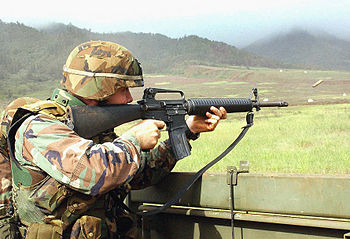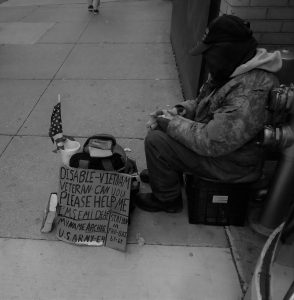
The U.S. Army trains its soldiers on how to go to war, but not necessarily on how to come back home, so say some Chicago-area veterans.
America has been at war with Iraq and Afghanistan for more than a decade, during which time over 2 million Americans have been deployed, according to ABC News.
Many struggle with re-entry.
Some say rather than the armed services counseling veterans to seek psychological support, that responsibility is left to family members and friends.
Specialist Lex Lockett a Chicago native, enlisted in the U.S. army in 2012 after a semester of college. He had always planned to enlist, but once he heard the army would pay his college tuition, he accelerated his timeline.
Lockett was stationed at Fort Drum in New York were he joined the infantrymen of 11 Bravo, a unit known for fighting on the front lines in many past conflicts.
Within six months, he was deployed to Afghanistan; he was 19 at the time.
Lockett’s unit was attached to Special Forces, where the soldiers were responsible for mainland combat and protection missions. Weeks after his 20th birthday, Lockett’s team leader was killed in front of him.
“I got him,” were the words Lockett heard his team leader say before dropping to the ground.
“As I got into a couple more fire fights, I became more numb to it,” Lockett said.
Lockett’s transition back from war was difficult. His hearing was worse and he had psychological problems. He even refused a month-long vacation, saying he had developed anger issues and he was not ready to face his family.
Lockett’s daughter was born two weeks before his deployment and for her first nine months he only saw her through Skype.
“The first thing I always wanted to do was hold my daughter,” Lockett said. “I felt disconnected to things I was supposed to be responsible for as a father.”
But when he returned home, his daughter wouldn’t let him hold her; worsening Lockett’s depression.
Lockett also suffered from severe migraines and had to receive IV drips at the hospital, which is where he had his first anxiety attack.
The army gives veterans different options to help them adapt to civilian life: resume workshops, job searches, financial skills, G.I. benefits and workshops to incorporate skills learned in the military to civilian jobs.
But those services don’t help them cope with the array of medical issues they face after enduring war.
“You can be 21 but feel 30,” Lockett said.
Other returning vets have similar struggles.
Sgt. Glenda Lee, a Detroit native, retired from the service in 2007 after two deployments to Iraq and Afghanistan. Known by her nickname, Gee, she was stationed at Schofield Barracks in Hawaii as a supply sergeant for the military police.
Lee was injured in combat when the truck she was riding in flipped and she broke both her kneecaps. She still has shrapnel in her head. Lee was medically discharged and is on disability.
Her transition to civilian life wasn’t easy.
“It was a weird experience not having to be shot at all the time,” Lee said.
Lee had a hard time being around fireworks and crowds, and she was very skeptical of everyone.
Lee found out about medical services at the VA Hospital on her own.
Relationships after combat are difficult for military personnel; the constant nightmares, anger and defensiveness makes it hard to maintain relationships.
Sergeant Micheal Tate served eight years in Iraq and Afghanistan. Straight out of high school he knew he wanted a career in the U.S. Army.
“I continue to re-enlist because I like my job and want to continue my 20 years,” Tate said.
But even for an enthusiastic soldier like Tate, the honor of serving comes with a cost.
Tate has had a hard time returning home.
It’s been three years since Tate left Afghanistan. Quiet rooms make him uncomfortable and sitting with his back against the wall facing the exit is a normal routine for him.
He, like many others, has difficulty talking about his problems.
“ I didn’t really express my feelings because I knew they wouldn’t understand,” Tate said.



















Be First to Comment